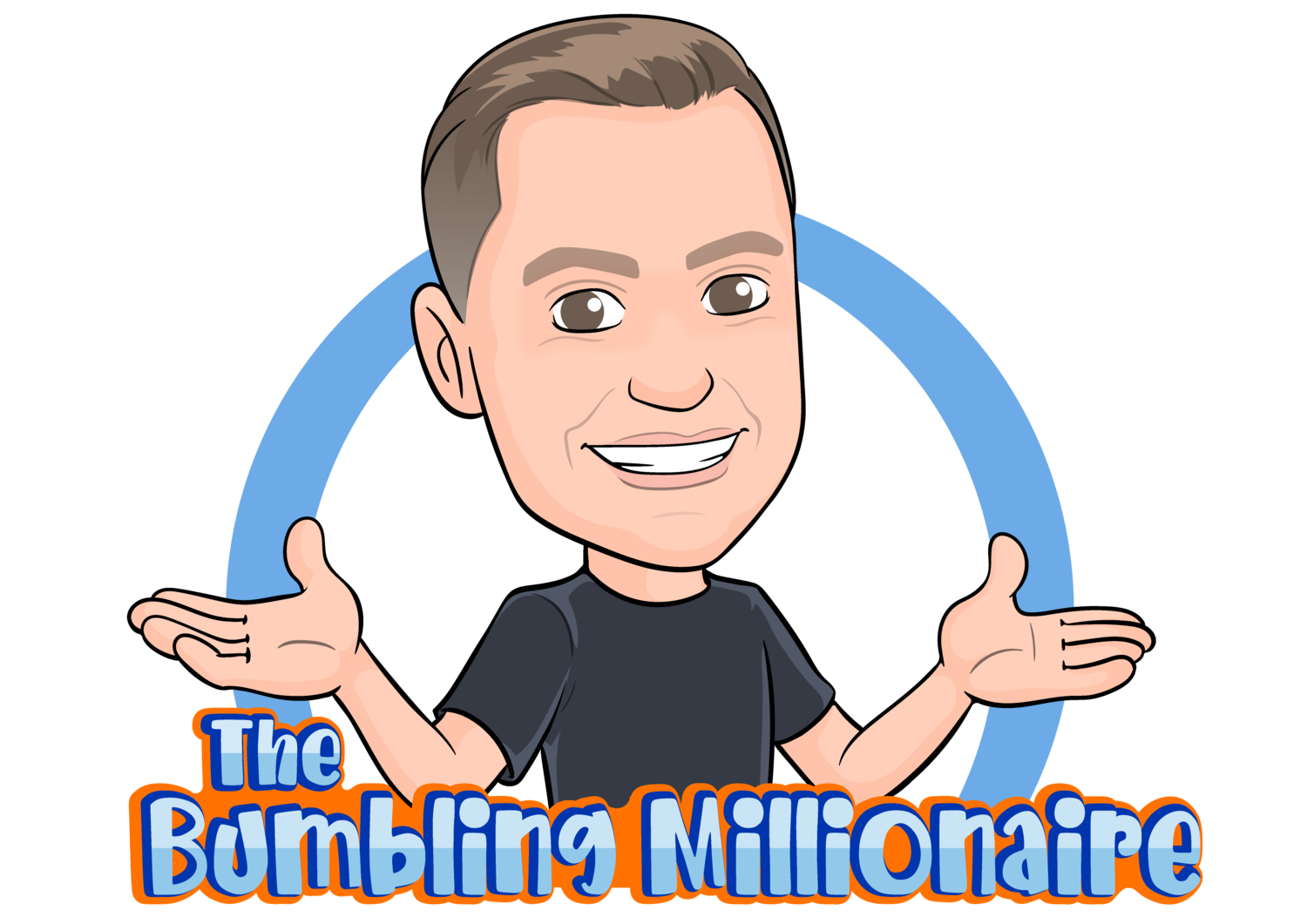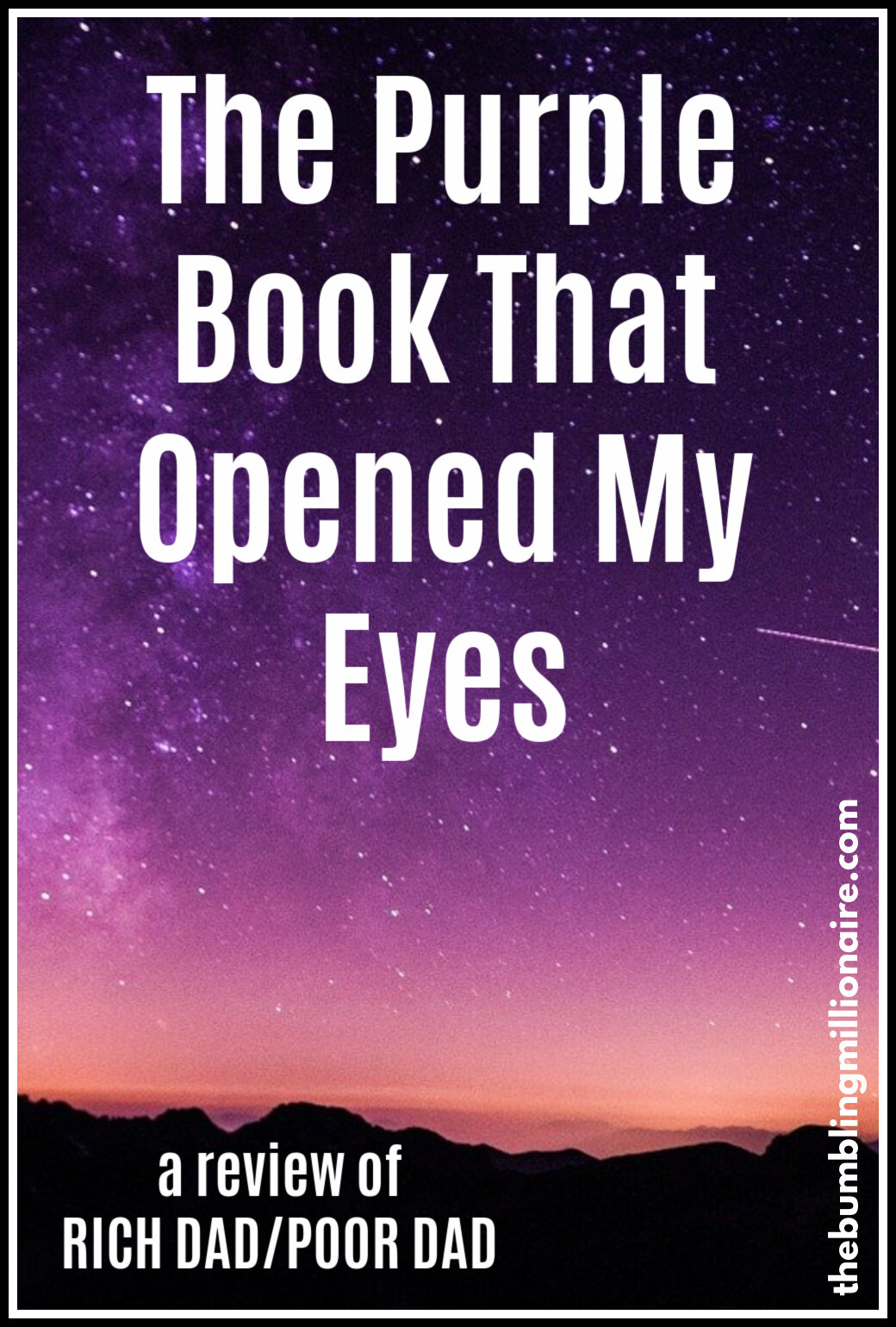The Purple Book That Opened My Eyes
/This post may contain affiliate links. Learn more by reading my disclosure.
I first read Robert Kiyosaki’s Rich Dad, Poor Dad about a decade ago. I got fired up about the ideas that Kiyosaki presented, but my personal financial habits were a mess and the idea of getting into real estate investing seemed so far away.
I read the book a second time a couple years later after I cleaned up my finances.
Then I bought the book on audio CD so I could listen to it while I drove.
All told I think I’ve read the book four times now and listened to the CD at least as many. It’s one of my favorites and a classic for any real estate investor.
If you’ve never read the book, I’m going to share with you five takeaways.
However, I suggest you take the time to read the book. Some of Kiyosaki’s thoughts might challenge your way of thinking. If that happens, then the book will be well worth the cost (or the time it takes to check it out from the library).
#1. Your House is Not an Asset
Kiyosaki took a lot of flak for this pronouncement and he still does from some sectors. Nevertheless, it’s a focus-changing philosophy when it comes to investing.
First, he challenged the old concept of assets and liabilities.
An asset puts money in your pocket while a liability takes money out.
That’s a simple explanation and quite ingenious.
No more cooking the books for your bank loan by saying your car, boat or golf clubs count as an asset. Unless of course, you’re an Uber driver, a jet boat racer or Rory McIlroy. For the rest of us, those things are liabilities.
Regarding your house, there are expenses such property taxes and insurance. Don’t forget the utilities to operate the property. Even if you’re like me and enjoy mowing the lawn, it’s a maintenance expense. Did you remodel a portion of your house? Well, that cost is part of upkeep. None of those items put money in your pocket.
Do you know when your house is an asset? At the moment you sell it. That’s it. Until then it’s a big heaping liability! That’s okay as long as you know it and pay attention to it.
The problem is that most Americans (and I’m afraid Canadians from what I’m reading about their housing market) are running around proudly saying, “My house is my biggest asset.”
That’s a load of crap.
With that attitude, people buy too much house because they believe they are investing.
The banks are willing to lend people as much as they can borrow and the real estate agents are willing to sell them as much as they can afford. It’s the buyer’s responsibility to stop themselves from making a bad borrowing decision, no one else. Stop blaming the banks and the real estate agents.
The uninformed buyer thinks he’s investing in an asset and buys too much house. Then he watches HGTV and think he should add value to it by renovating a room or two. He goes all out in the kitchen – new counters, floors, appliances, etc. He finances the reno, all in the name of increasing the value of his wrongly-identified asset, yet, it’s not putting any cash in his bank account.
Some folks may ask, “What about refinancing and pulling equity out?” To which I reply, “Your home is not an ATM!”
Don’t refinance and pull cash out. That’s a terrible decision. It’s like putting a loan on your car so you can buy another trinket. You’re not helping yourself.
When I bought my current home, I did it with a critical eye. Not toward the house (well, yes, I did that, too), but to the idea that it was a big, fat liability. The rule of thumb in the residential world is that you can buy a home up to three times your annual salary. I never thought about that before Rich Dad, Poor Dad or when I was struggling with my own finances. However, once I cleaned up my act, I sure did. When I purchased my new house it is was equal to about one year’s salary.
The guys in my office questioned why I bought such an affordable house when I could have clearly bought “more.”
I knew that I didn’t need a bigger house and, besides, I would have been buying a bigger liability! My house is nice and my back yard is awesome. What’s even better is the house has gone up in “market value” by $60,000 while I’ve chunked down the mortgage.
However, I still realize that every day my house is my single biggest liability to keep operating.
#2. The Rich Teach Their Kids Differently
I was sitting at a sandwich shop once while a well-known family in local real estate circles sat in the booth behind me. The patriarch was with his wife and two sons, both in their mid-twenties.
I tried not to eavesdrop and instead focused on the book I was reading. However, they were a bit loud and their conversation pointed out something that Kiyosaki stated in his book; the rich teach their kids differently than the poor and middle class.
For the next thirty minutes, their conversation weaved through a discussion of real estate assets they currently owned and ones they were considering purchasing for the family. They talked about expected rates of return, whether they should sell currently-owned assets and if they should purchase one of the available properties that was brought up.
The father gave advice to his sons on money and spotting investments.
I played that conversation against one I’d had just days prior with my daughter. We talked about, well …, nothing. What advice had I given her? None that was of any value.
It was at that moment I realized I’d let her down. I’d also let myself down, but for me it was worse knowing I’d failed her. She was just starting her life and she was going to walk head-on into the same mistakes I had made. I hadn’t correctly prepared her for the road ahead.
After this realization sunk in, I shared the lessons I was learning with her. However, it would take years before my actions and words were fully aligned so she could see the results I was creating.
#3. Mind Your Own Business
This concept is with me every day now. Kiyosaki tells the reader to “mind their own business.” It’s a playful use of words to remind the reader that they also have a duty to build a business of their own while helping their employer get wealthy.
Do you think of yourself as a business? I do.
Actually, I think of myself as a conglomerate with numerous divisions – call it Colin, Inc. There’s the real estate investing division with its various sub-divisions (LLCs). It’s been extremely active and profitable. There was a martial arts division that was spun off when it wasn’t performing. The fiction writing wing has been dormant for some years, but it’s recently ramped up production and some exciting new stuff is expected out within the year. A blog division was created in 2017 – it’s not shown a profit yet, but its potential is limitless. There were a couple unsuccessful attempts at businesses over the years that taught me valuable lessons.
Creating income streams away from your job is important. It’s how you can get ahead.
If you can create a passive income stream of $2,000/month, that’s $24,000 a year less pressure you’ll feel at work.
Once you can create income streams greater than your current job, you can escape the shackles of employment and work for yourself (if so desired).
#4. Work to Learn
Kiyosaki promotes the idea of taking a job not for the paycheck, but for the education it will provide.
It was an interesting concept and one I didn’t fully appreciate until reading Rich Dad a couple of times.
When I first got out of college, I thought I was going to be a stock broker. That’s why I went to school. However, I needed a job immediately and out of desperation fell into an executive assistant position. Six months later I was a property manager in training. Six months after that I was full time property manager.
To me, it was only a job. Not one I really enjoyed nor saw myself doing forever. However, I was getting a free education in real estate. I didn’t embrace it as such. If I had, I might have done things differently. Regardless, some lessons stuck before I left to chase another dream. I ended up back in real estate later, again getting a free education from my employer.
What are you learning today or have you learned previously that can help you start a side hustle? It’s amazing how many of us turn off our brains and recognize only formal education as where we learned something. The real education starts when we punch the clock to earn a paycheck. Those are the lessons we need to absorb and internalize.
Today, I manage my own real estate using the lessons taught to me by a former employer.
#5. The Rich Invent Money
I love this one because I didn’t believe I could do it.
Then I did it.
I’ve put together real estate deals and brought in various partners. To those partners, I’ve charged a development fee. That fee is my time and effort associated with finding the deal, negotiating it, working with the bank, due diligence, meeting with tenants or prospective tenants, etc. The partners saw value in what I did since they didn’t have time to set the deal up for themselves.
I valued myself and my time, therefore others did as well.
As I explained in the blog post How About a Nice Cup of Joe?, we bought a property, tore down the building and ground leased it to a local coffee company. In five years, the value of the property is now more than double what we originally paid for the property due to the growth in the ground lease.
How did we invent money? We saw an opportunity, hatched an idea and then put action to it. We didn’t wait for permission to act. We just did it. In a little more than five years, the property will be 100% paid off and it will be a cash flow machine.
Rich Dad, Poor Dad is one of my favorite books. It’s a quick, easy read and a great primer to anyone wanting to get started into investing, whether it’s real estate or something else. It’s not the end-all-be-all book by any stretch, but it does shift the paradigm on several subjects.
If you haven’t read, it will be worth your time. Give it a chance.
And if you’re one of the millions who has read it, when’s the last time you cracked it open? I rediscover a concept every time I go through. Maybe you will as well.
Have you read Rich Dad, Poor Dad?
What are your thoughts?







